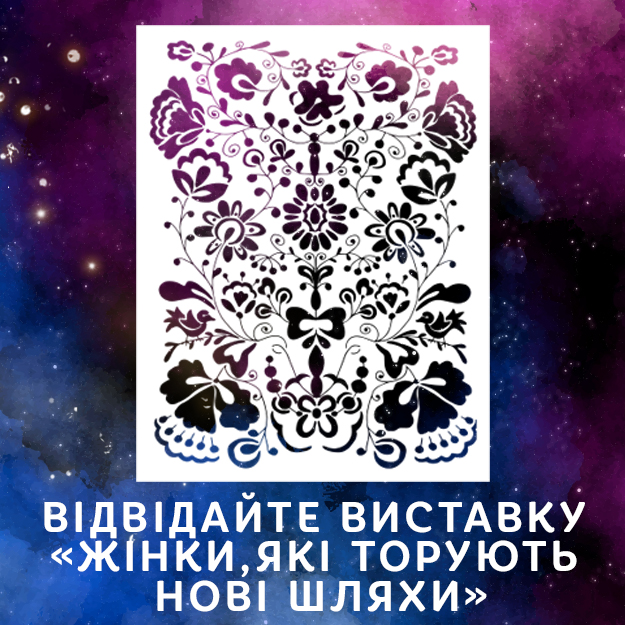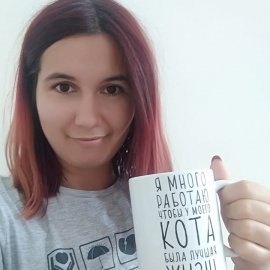Ukraine is one of the countries where human rights are considered the highest social value, equality of rights is a fundamental principle, and discrimination is prohibited. Despite respective constitutional provisions, there are still cases of discrimination on various grounds in Ukraine. Sexual orientation and gender identity are the grounds on which LGBT+ people, in the first place, are discriminated.
The martial law in the country has led to an even more unequal position of LGBT+ people compared to heterosexual people.
What new challenges and issues have LGBT+ military faced under the martial law? Has the war affected their rights? This publication aims to provide answers to these questions.
Today, when a full-scale war is on-going in Ukraine, LGBT+ people, just like heterosexuals, are serving in the military on equal terms. Despite the fact that LGBT+ people defend Ukraine, there is a significant difference in the realization of their rights compared to heterosexuals.
First of all, this is because same-sex couples living together as a family are not automatically recognized as a family under the Ukrainian law, and this causes a number of legal issues for them.
What is the Problem about?
As a general rule, living together and running a common household is the basis for the emergence of a family.
Thus, blood relationship or marriage are not the only grounds for considering persons as family members, since a family is about persons living together, having a common budget, and running a common household (Article 3 of the Family Code of Ukraine). Therefore, LGBT couples who live together and share a common household are, in fact, families.
At the same time, one of the prerequisites for considering persons to be members of one family is marriage, which can only be concluded by persons of different sexes, that is a man and a woman.
In addition to spouses, family members may include persons related to each other by blood, for example parents or children, which does not require additional confirmation in the presence of a birth certificate.
From the legal perspective, LGBT+ people living with their partners as one family are not considered as such since their status is not regulated by the norms of our legislation.
The national legislation of Ukraine does not allow same-sex couples to register marriages and, therefore, they are not considered spouses, which, hence, does not provide them with the rights and guarantees that spouses can enjoy.
Such rights and guarantees are related to the emergence of the right to joint ownership of the property acquired, inheritance, maintenance of each other, possibility of adopting children, receiving social protection in cases provided for by law, etc.
Guarantees for the Military Personnel and Members of Their Families
Under the martial law, such inequality in rights between heterosexual couples and LGBT couples has become even more noticeable compared to the peacetime. The reason is that during the martial law, in addition to the general rights and obligations prescribed by the family law for spouses as one family, the latter are also granted special social protection if one of the spouses is a serviceman/servicewoman.
In particular, the state guarantees all servicemen who have been on military service and their family members social guarantees, which may include appropriate financial support, benefits, compensation, medical care, etc.
Therefore, in case a partner who served in the military was killed, wounded, captured, or got missing, the other LGBT+ partner will not be able to receive guarantees from the state as a family member of such a serviceman since the parties are not considered spouses.
In order to prove that same-sex couples lived together as one family, and therefore have the right to appropriate guarantees from the state, it is necessary to go to court and establish the fact of living as one family.
To better understand the issue, it is necessary to analyze social security guarantees to which servicemen and their family members are entitled compared to the servicemen whose partnerships do not form a family in the classical sense within the national legislation of Ukraine.
The major legal document regulating the provision of social protection to servicemen and members of their families is the Law of Ukraine “On Social and Legal Protection of Servicemen and Members of Their Families.”
This Law identifies the guarantees to which both the persons performing military service and members of their families are entitled.
One of the guarantees is financial support that can be paid to family members under appropriate grounds. One of such grounds is capture, hostage-taking, or a situation when such a person went missing during military service.
Since the partner with whom a serviceman/servicewoman was in a relationship is not considered a family (spouse), respective LGBT+ partner is deprived of the possibility to receive financial support. At the same time, a heterosexual family (that is a husband or a wife) has the right to receive such payments under respective grounds.
The situation is the same with regard to payment of financial support to family members of a serviceman/servicewoman in case of their death during military service.
Other guarantees that LGBT+ partners are unable to use in case of military service of the other partner include benefits for medical care, payment for housing and communal services, improvement of living conditions, etc.
In addition, as a LGBT+ partner has no legal possibility to adopt the child of their partner, such children do not have the right to state guarantees that are in force when one of the parents is a military serviceman. In particular, this regards educational benefits, such as priority enrollment in secondary and preschool educational institutions.
At the same time, payments or benefits are not comparable to the rights in which LGBT+ partners are restricted when there is an urgent need to resolve issues related to the life and health of a serviceman facing a difficult situation due to the protection of our state.
For example, if during military service a serviceman/servicewoman went missing under the circumstances that threatened them with death, their family members have the right to file an application for their search, receive reliable information about the whereabouts of such a person, as well as the circumstances of their death, burial place (if known), etc. In addition, family members have the right to petition the court to declare such a person missing and establish custody of property.
Therefore, if a serviceman or servicewoman is missing and has no other relatives and their partner is the only close person, the latter will not be able to receive any information about the whereabouts of their partner or to request their search since their status in relation to such a serviceman or servicewoman is not regulated by the law.
Despite the fact that the Law of Ukraine “On the Legal Status of Persons Gone Missing under Special Circumstances” grants persons who lived together as one family with the person who has gone missing during military service the right to file a wanted notice, etc., much effort is needed to prove such relations, because under legal provisions everything comes down to family members and close relatives in the context of family relations.
In view of this, LGBT+ partners are limited in their right to declare the search for a missing military partner.
In addition, defenders in same-sex partnerships may face challenges with regard to traveling abroad for treatment.
In particular, our state guarantees servicemen who have suffered due to Russia’s military aggression against Ukraine the right to undergo medical treatment abroad. However, the condition for the defender to travel for treatment is accompaniment by a first-degree family member. Under the provisions of the Tax Code of Ukraine, first-degree family members include parents, spouse, and children of such an individual, including adopted ones.
Thus, a defender who needs accompaniment will not be able to use the accompaniment of their partner. In addition, if this person has no family members, for example, parents or adult children, they will not be able to go for treatment.
Legal issues may also arise when one of the partners was captured during military service. In particular, after the release of defenders from captivity, competent authorities of Ukraine organize a meeting of the released persons with their family members and close persons. Therefore, in order for a LGBT+ partner to be able to attend the meeting with the released person, much effort needs to be made to prove that such person is a close person or a family member.
In the conditions of war, our defenders who gave their lives defending our state have an unconditional right to honor and respect for their bodies, and family members of such persons have the right to say goodbye to them and organize a funeral rite.
Current legislation of Ukraine regulates the procedure for the burial of a defender who died during military service. In particular, family members have the right to receive information about the death of the person, to organize the defender’s funeral together with the military unit, to receive personal belongings of such person, etc.
However, if the deceased person had no relatives, except for a partner, the latter must prove the right to bury the person. Since same-sex couples having relationships similar to marriage are not considered a family under the law, they will not be able to enjoy the full range of rights guaranteed to heterosexual families.
Thus, Ukraine’s conservative recognition of marriage as a union of a man and a woman causes discrimination against LGBT+ people. Under the martial law, this inequality is a highly acute issue.
Since LGBT+ military perform military service equally with others, they have an unconditional right to equality and state recognition of their relationships, since this determines the realization of the fundamental rights that all people have.
Rights and Obligations of Spouses
Apart from these legal issues inextricably linked to the martial law, there are also other legal issues that existed in the peacetime and still exist today.
These issues relate to family law. As noted above, a man and a woman who have married are considered family and spouses, and therefore have a wide range of rights and obligations towards each other. However, since the status of LGBT+ partners is not enshrined in law, they do not have the same rights and obligations as spouses.
As a general rule, property acquired by spouses in the process of cohabitation (for example, real estate, movable property, and funds in bank accounts) is considered joint and is subject to division on equal terms.
At the same time, property acquired by LGBT+ partners during cohabitation is not considered joint but personal property of the one in whose name it is registered.
Spouses also have the right to maintain each other. For instance, if a spouse is incapacitated, needs financial assistance, etc., the other spouse is obliged to maintain their spouse. This right does not apply to LGBT+ partners.
One of the constitutional rights of every person is the right to motherhood and fatherhood. However, LGBT+ partners are limited in this right, as they cannot adopt children who are orphans or deprived of parental care.
Restrictions in raising children are especially noticeable under the martial law. If a defender had a relationship with another partner, the latter has limited possibilities to adopt or become a guardian or custodian of their child if the serviceman/servicewoman died during military service.
No less significant issues arise for a LGBT+ partner when inheriting the property left after the other partner’s death. This relates to the order of inheritance provided for by the law. The first line of heirs includes, in particular, children, the surviving spouse, and parents.
Therefore, if there is no will regarding property disposal in the event of death, the other partner will not be able to inherit such property in the first order of succession because LGBT+ partners are not considered spouses under the law.
The only option to solve the issue of inheritance is to prove in court the fact of living with the testator as one family for at least five years before the death of such person. However, even in this case, the person will not be able to receive all the inherited property since inheritance is carried out in the order of succession and, therefore, if there are other relatives, they will have an advantage in receiving the inheritance.
Also, if one of the LGBT+ partners wants to give property to the other, they need to pay a significant tax to the notary. Meanwhile, first-degree family members of the gifted person (parents, spouse, or children of such an individual) are exempt from paying tax for the property received as a gift.
***
In view of the above, LGBT+ people are limited in a wide range of rights, which is especially noticeable in the conditions of war, when one of such partners is doing military service.
More than ever, now — under the martial law — LGBT+ partners need to have their legal status in relation to each other regulated at the legislative level. We hope that Ukraine will soon be able to create legislative opportunities for equality and elimination of discrimination against LGBT+ people in our society, which is considered democratic and for which a person and their rights are the highest social value.
List of Sources Used
- The Family Code of Ukraine;
- The Civil Code of Ukraine;
- The Tax Code of Ukraine;
- The Law of Ukraine “On Social and Legal Protection of Servicemen and Members of Their Families.”
- The Law of Ukraine “On the Legal Status of Persons Gone Missing under Special Circumstances.”
- Instruction on the Organization of Burial of the Servicemen who Died during Military Service.
- The Resolution of the Cabinet of Ministers of Ukraine “On Ensuring the Organization of Sending Persons from the Defense and Security Forces, Affected by the Military Aggression of the Russian Federation against Ukraine, for Treatment Abroad” of April 5, 2022.
- The Resolution of the Cabinet of Ministers of Ukraine “Some Aspects of the Priority Measures to Ensure Social Protection of Released Persons” of June 28, 2022.


















